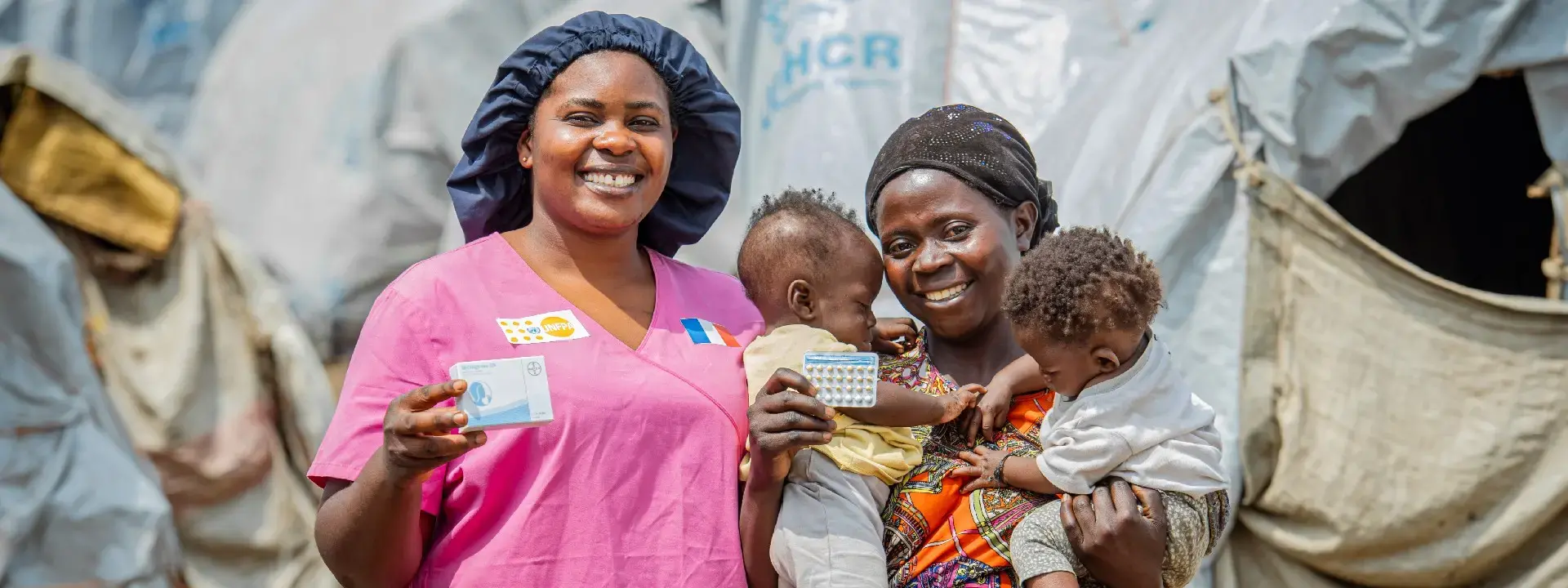The DRC has a high fertility rate. Around 6.6% of children are born to women. Often, these "women" are adolescent girls. (More than one in four adolescent girls has already begun childbearing.) 28% of Congolese women express an unmet need for family planning, meaning they wish to space or stop having children, but do not use any contraceptive method to avoid an unwanted pregnancy.
According to the 2018 MICS, nearly one married or married woman (28.7%) expressed an unmet need for family planning, either to space births (19.4%) or to stop having children (9.3%). The unmet need for family planning among married/married adolescent girls aged 15-19 is 33.2%, above the national average of 28.7%. Unmet need for family planning is even higher among sexually active unmarried/not in a union women, at 42.9% overall, including 35.5% for birth spacing and 7.4% for birth control. In this category, nearly 60% of adolescent girls aged 15-19 expressed unmet need for contraception.
UNFPA and Unmet Need for Family Planning
The United Nations Population Fund (UNFPA) works to ensure that women have the means to control their fertility, in accordance with the 1994 International Conference on Population and Development (ICPD), which affirms the right of all to sexual and reproductive health, information, and appropriate services, including the fundamental right of all individuals and couples to decide freely and responsibly the number and spacing of their children and the right to have the information, education, and means to do so.
UNFPA works to promote family planning in developing countries by ensuring a reliable supply of a comprehensive range of modern contraceptives, strengthening national health systems, and promoting gender equality.
UNFPA calls on governments to fulfill their commitments regarding universal access to sexual and reproductive health services and reproductive rights, including family planning services and related information, as agreed at the 1994 International Conference on Population and Development and the 2030 Agenda for Sustainable Development.
UNFPA's mission: to build a world in which every pregnancy is wanted and every childbirth is safe, a world in which every young person realizes their full potential.
On the path to 2030, UNFPA has moved from its first Strategic Plan 2018-2021, which defined the vision and determined the path forward, to its second Strategic Plan 2022-2025, to accelerate and scale up interventions aimed at accelerating the achievement of three transformative results: Outcome 1: Accelerated reduction of unmet need for family planning by 2025; Outcome 2: Accelerated reduction of preventable maternal deaths by 2025; Outcome 3: Accelerated reduction of gender-based violence and harmful practices by 2025.
The goal of the SP 2022-2025 is to achieve universal access to sexual and reproductive health and reproductive rights for all, and to accelerate the implementation of the PoA/ICPD. This is in alignment with FP2030 whose goal is to “Ensure universal access to sexual and reproductive health care services by 2030, including for family planning, information and education, and the integration of reproductive health into national strategies and programs.”


